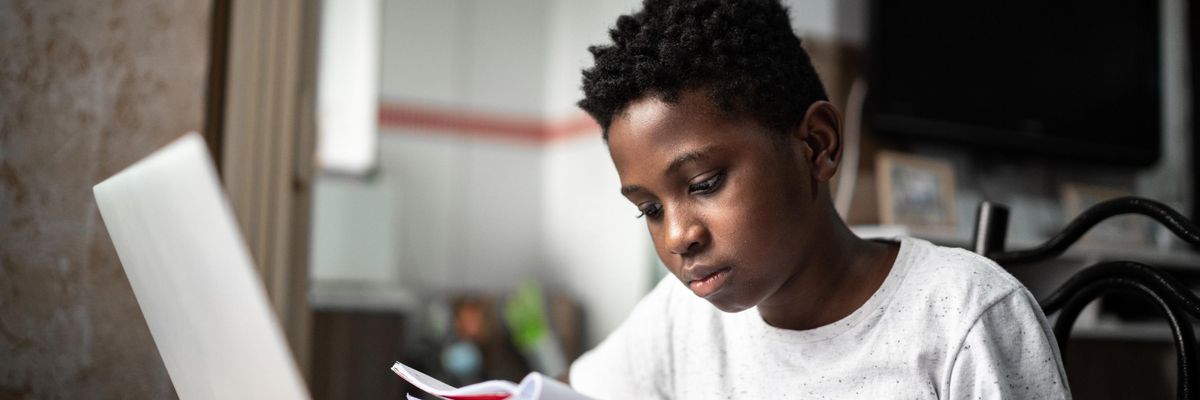Nearly 100 LGBTQ+ and human rights groups warned in a Monday letter to Congress that while "privacy, online safety, and digital well-being of children should be protected," proposed legislation intended to do so would instead negatively impact all internet users.
"While KOSA has laudable goals, it also presents significant unintended consequences that threaten the privacy, safety, and access to information rights."
Specifically, the letter says that the Kids Online Safety Act (KOSA) "would undermine those goals for all people, but especially children, by effectively forcing providers to use invasive filtering and monitoring tools; jeopardizing private, secure communications; incentivizing increased data collection on children and adults; and undermining the delivery of critical services to minors by public agencies like schools."
Led by the Center for Democracy & Technology (CDT), Electronic Frontier Foundation, and Fight for the Future, the letter explains each issue in detail. For example, "KOSA establishes a burdensome, vague 'duty of care' to prevent harms to minors for a broad range of online services that are reasonably likely to be used by a person under the age of 17."
The "damaging" potential impacts of this requirement, the letter notes, include limiting "access to critical information such as sex education or resources for LGBTQ+ youth" and online services facing "substantial pressure to over-moderate, including from state attorneys general seeking to make political points about what kind of information is appropriate for young people."
"KOSA would also require platforms to enable parental supervision of minors' use of their services," the letter points out, acknowledging that while such tools can be important for younger children, it is not limited to them, so the policy "risks subjecting teens who are experiencing domestic violence and parental abuse to additional forms of digital surveillance and control that could prevent these vulnerable youth from reaching out for help or support."
If passed, S. 3663 would also "counterintuitively encourage platforms to collect more personal information about all users," the letter adds. "However sensible these features might be for young children, they would also fundamentally undermine the utility of messaging apps, social media, dating apps, and other communications services used by adults."
"Finally, KOSA's provisions may also unduly burden and even undermine the work of key institutions that serve minors, including schools," the letter stresses, highlighting that "students increasingly use a wide range of technology in school settings, through learning platforms, student information systems, online gradebooks, parental portals, and tools for sharing student data with other governmental entities to determine eligibility for benefits."
"In short, while KOSA has laudable goals, it also presents significant unintended consequences that threaten the privacy, safety, and access to information rights of young people and adults alike," the groups concluded. "We urge members of Congress not to move KOSA forward this session, either as a standalone bill or attached to other urgent legislation, and encourage members to work toward solutions that protect young people's rights to privacy and access to information and their ability to seek safe and trusted spaces to communicate online."
The letter comes amid speculation that the bill's backers could push for its inclusion in a spending package that must pass in the next few weeks.
Democrats have just about a month before Republicans take control of the House of Representatives following the recent midterm elections--though KOSA has co-sponsors from both parties, meaning it could still move forward if reintroduced next year. The current bill was introduced in February by Sens. Richard Blumenthal (D-Conn.) and Marsha Blackburn (R-Tenn.). It advanced to the floor along with the Children and Teens' Online Privacy Protection Act (S. 1628), also known as COPPA 2.0, in July.
Some children-focused advocacy groups and public health experts have backed both bills, emphasizing that "there has been no significant federal legislation to protect children and adolescents online" since the original Children's Online Privacy Protection Act (COPPA) passed in 1998.
However, advocates at the groups supporting the new letter--including the ACLU, GLAAD, National Center for Transgender Equality, Human Trafficking Prevention Project, the Tor Project, Wikimedia Foundation, New America's Open Technology Institute, and National Health Care for the Homeless Council--are calling on Congress not to settle for a flawed bill.
"KOSA's aim of protecting young people online is commendable, but the bill risks jeopardizing the safety and privacy of some of our most vulnerable youth by presuming that parental surveillance of teens' internet use is universally a good thing," said Emma Llanso, director of CDT's Free Expression Project. "Congress should focus on passing bipartisan federal privacy legislation and not rush KOSA through without time for debate."
Fight for the Future director Evan Greer also called for focusing on privacy legislation.
"The LGBTQ+ community is actively under attack and it's unthinkable that Democrats are considering advancing a bill that will further harm us and disproportionately target queer and trans young people," Greer said. "Congress needs to pass real laws that rein in the abuses of Big Tech and protect everyone's privacy and human rights rather than using kids as pawns to advance poorly drafted legislation in order to score political points."

